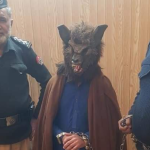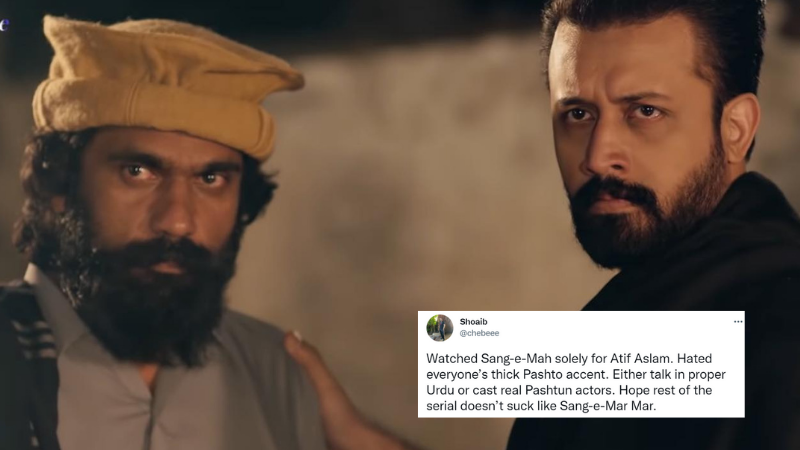The Pakistani Urdu drama serial Sang-e-Mah has been making headlines since its first episode was aired. The Saifee Hassan directorial features a star-studded cast, including Atif Aslam, Sania Saeed, Nauman Ijaz, Samiya Mumtaz, and Kubra Khan. The serial focuses on the societal taboo of Gagh, an old tradition of the Pashtun people, which involves the exchange of women between rival tribes as a way to settle disputes. While the drama has garnered a lot of attention, the portrayal of Pashtun culture has raised concerns among the Pashtun community.
Outrage Among Pashtuns Over Negative Portrayal
The depiction of Pashtuns in Sang-e-Mah has triggered outrage among the Pashtun community, who feel that the drama is perpetuating negative stereotypes about their culture and traditions. The portrayal of Pashtuns as violent, misogynistic, and backward has long been a contentious issue for the community, who argue that it reinforces harmful stereotypes and prejudices against them.
The representation of Pashtuns in the media has been a recurring issue, with many feeling that their culture and traditions are misrepresented or ignored altogether. The Pashtun community has a rich history and culture, and it is essential that it is portrayed accurately and respectfully in the media.
Gagh: A Misrepresented Tradition
One of the primary concerns of the Pashtun community with Sang-e-Mah is the way it portrays the tradition of Gagh. The practice has largely been phased out in modern Pashtun society, and it has been widely criticized for its potential to perpetuate violence and abuse against women. While the drama has brought attention to this controversial practice, the Pashtun community feels that it has done so in a way that reinforces negative stereotypes about their culture.
The Pashtun community has taken to social media to express their concerns, with many using the hashtag #PashtunRejectSangEMah to voice their dissatisfaction with the drama’s portrayal of their community. Some have called for a boycott of the drama, while others have urged the producers and directors to be more responsible in their portrayal of Pashtun culture.
The Importance of Accurate Representation
The controversy surrounding Sang-e-Mah highlights the importance of accurate representation in the media. It is essential that all cultures and communities are portrayed in a way that is respectful and accurate, without perpetuating harmful stereotypes or reinforcing prejudice and discrimination.
The Pashtun community, like all other communities, deserves to be represented in a way that reflects the diversity and richness of their culture and traditions. The portrayal of Pashtuns as violent and misogynistic reinforces harmful stereotypes and prejudices that have been used to justify discrimination and prejudice against the community.
Moving Forward: A Call for Responsible Portrayal
The Pashtun community is not alone in their call for responsible portrayal in the media. Many other communities have also faced misrepresentation and harmful stereotypes in the media, leading to discrimination and prejudice. It is the responsibility of producers, directors, and writers to ensure that their portrayal of cultures and communities is accurate, respectful, and inclusive.
In conclusion, while Sang-e-Mah has garnered a lot of attention for its storyline and cast, it has also raised concerns about the portrayal of Pashtun culture. The Pashtun community feels that the drama is perpetuating negative stereotypes and prejudices about their culture and traditions, and they are calling for responsible portrayal in the media. It is essential that all cultures and communities are represented accurately and respectfully, without perpetuating harmful stereotypes or prejudices.


